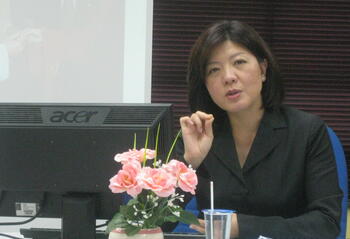Eikenberry trains East Africa’s rising military leaders
Karl Eikenberry recently returned from a visit to Rwanda where he lectured military and policy officials from across East Africa at the Rwanda Defence Force Command and Staff College (RDFCSC). Eikenberry, who is a retired lieutenant general from the U.S. Army and the former U.S. ambassador to Afghanistan, was able to apply his experience to help build the capacity of the military and armed forces in post-conflict countries in Africa.
Reflecting on the trip, Eikenberry discussed the role that the military plays in supporting the development of the rule of law in post-conflict societies and how academic institutions can support state-building efforts abroad through knowledge exchange and training programs.
Eikenberry is the William J. Perry Fellow in International Security at the Center for International Security and Cooperation at Stanford’s Freeman Spogli Institute for International Studies. He is also an affiliate of FSI’s Center on Democracy, Development and the Rule of Law as well as the Shorenstein Asia-Pacific Research Center.
What attracted you to this opportunity?
Last summer, I had the opportunity to present on civil-military relations at the tenth annual Draper Hills Summer Program, organized by the Center on Democracy, Development, and the Rule of Law. Subsequently, I was asked by one of the participating fellows from Rwanda if I might visit the country to present to leaders of its armed forces on this same topic. I enthusiastically accepted the invitation extended by the Rwanda Defence Force Command and Staff College (RDFCSC), which opened just three-years ago, to lead a two-day seminar of 47 senior military and police officers from Rwanda, Tanzania, South Sudan, Burundi, Uganda, and Kenya.
We discussed strategy, security policy formulation and implementation, civil-military relations, and counterinsurgency warfare. These were topics relevant to my own professional experiences as a soldier and diplomat having served in post-conflict countries like Afghanistan. Given the challenges that several countries in the East African Community are facing in strengthening their political institutions, providing security for their populations, and improving their economies and peoples livelihoods, I thought I might be able to make a small contribution to the curriculum at the RDFCSC. I also hoped to learn from the faculty and students who have seen and accomplished a great deal over the course of their own 20-30 year careers.
What surprised you the most about the experience?
I was struck by the fact that many of the military officers participating in this 46-week masters degree course had served on multiple tours of duty in difficult multinational peace enforcement and peacekeeping missions in their own countries and the surrounding region. They had an extraordinary grasp of the political, security, and development problems that their civilian leaders were attempting to solve. Most realized that without regional cooperation that the prospects of their own country prospering were quite limited. So I was impressed with how they viewed security as having both national and collective dimensions. The students were keen to learn about the theory and practice of civil-military relations in democratic countries and some of the best learning resulted from exchanges among the students themselves.
What role can the military play in helping to advance democratic development in post-conflict societies like Rwanda, Burundi and South Sudan?
Militaries can play several important roles in post-conflict societies, especially those that have been traumatized by civil war fought along ethnic or sectarian lines. First, if the armed forces are inclusive, they can serve as a very visible reassurance to the people that reconciliation is not only possible, but is being practiced. Second, if the armed forces demonstrate a commitment to the rule of law, they can provide an example worthy of emulation to political authorities attempting to establish effective government institutions. Third - and last - capable popular national military forces can eventually suppress and replace the violent unaccountable militias whose existence obstructs social and economic development.
What role can experts from Stanford and other leading academic institutions play in helping to support the development and capacity building of the military in post-conflict societies?
I was impressed with how eager the Rwandan and East Africa Community military officers were to learn about the influence of history, constitutional law, political culture, society, missions, and resources on the character of a nation’s civil-military relations. I think the Stanford CDDRL faculty and fellows can contribute much to the development and capacity building of militaries in post-conflict societies due to their breadth and depth of experience. CDDRL collectively has global expertise in political, security, and development issues and brings to the table skills that can prove helpful to those grappling with difficult but important state-building challenges, such as ordering civil-military relations in democratic countries. At the same time, CDDRL can learn much by exchanging views with those responsible for managing change, like the military and police officers whom I spent time with in Rwanda.


